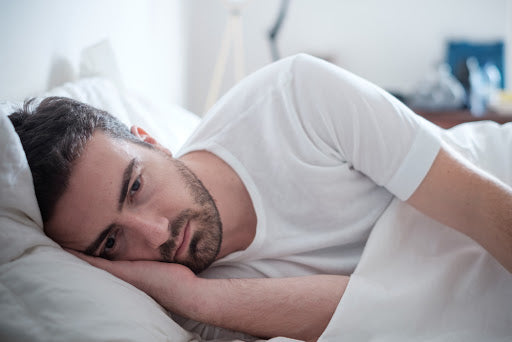There are many clear and measurable side effects to untreated sleep apnea, from daytime fatigue to high blood pressure. What is tougher to see is the connection between depression and sleep apnea, and what impact the combination can have on the person with an untreated sleep disorder.
How Sleep Apnea And Depression Are Linked
On its own, depression cannot cause obstructive sleep apnea. There is a lack of other physiological triggers which lead to the relaxing of the muscles in the upper airways that cause obstructive sleep apnea. However, untreated sleep apnea can trigger depression. This triggering is caused by disruption of your natural sleep cycle that sleep apnea causes.
Sleep is vital to maintaining your mental and physical health. Adults need an average of 7-9 hours of uninterrupted sleep. But when you have untreated sleep apnea, your body can wake up multiple times a night due to sleep apnea episodes where your airway will become obstructed. This continual disruption keeps your brain from going through the restorative cycle it needs to maintain your moods during the day.
Sleep Apnea Treatment Can Assist With Depression
You don’t have to just accept that sleep apnea and depression are linked. In fact, a recent study has shown that sleep apnea treatment can have a significant impact on depression. Participants in the study who had clinical depression and sleep apnea were asked to stick to a regular regiment of using a CPAP machine.
By the three-month follow up on the participants, all of them—even those with previously suicidal thoughts—reported feeling significantly better.
This study highlights how important sleep apnea treatment machines such as CPAP and AutoPAP machines are to helping not only with the obvious side effects of sleep apnea, but also the more invisible struggles which accompany sleep apnea.
Depression May Mask Obstructive Sleep Apnea
Lastly, it is important to point out that depression can actually mask that you have obstructive sleep apnea. Many of the side effects of depression such as constant fatigue, oversleeping, sexual dysfunction, and other issues overlap with sleep apnea and could keep you from being properly diagnosed.
To help you see if you may have several sleep apnea symptoms, you can fill out our patient questionnaire. ApneaMed will contact you about what your answers may mean, and if there are enough symptoms in common with sleep apnea, you may want to take our home sleep test to check for sleep apnea.
If you would like to learn more about our sleep apnea home test or about our sleep apnea treatment products, feel free to contact us today.

